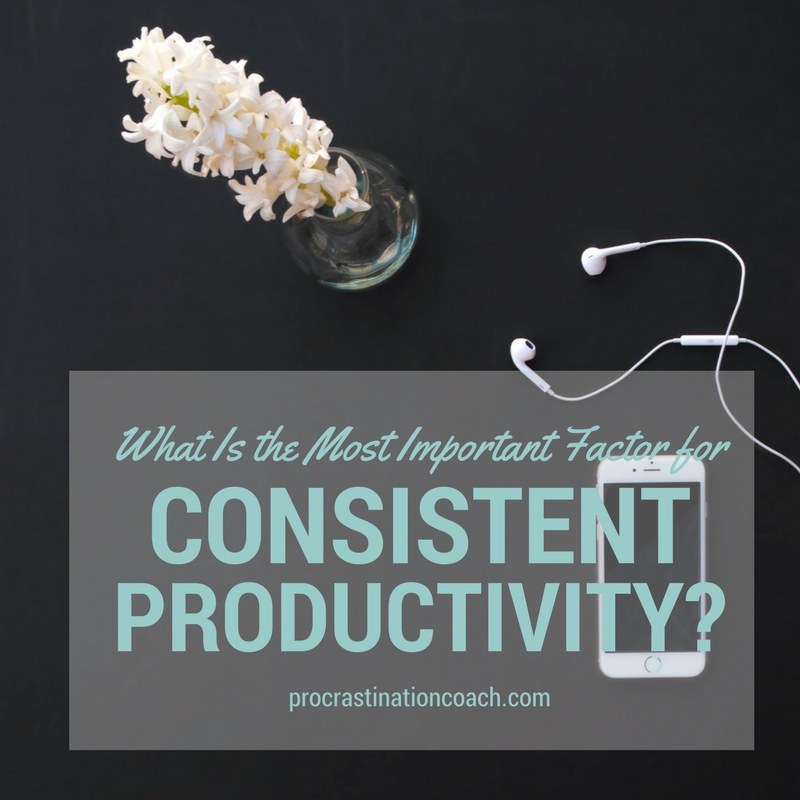 Both procrastinators and non-procrastinators yearn to be more productive. There are lots of strategies, tools, and techniques to assist us in our work and daily lives these days, but even with that assistance, many people find consistent productivity hard to achieve.
Both procrastinators and non-procrastinators yearn to be more productive. There are lots of strategies, tools, and techniques to assist us in our work and daily lives these days, but even with that assistance, many people find consistent productivity hard to achieve.
Why is this the case? Why do we intend and want to be productive and to get our work done, but then have our actions get in our way? So often our actions don’t line up with our original intentions.
I found the answer to this question in a conversation with my husband.
I talked with my husband about all things related to being consistently productive. We had the opportunity to review what we thought were the most important factors for getting things done. He is a project manager and an inherently organized and practical, and of course that means he’s the world’s exact opposite of me, a hopelessly disorganized and spirited psychologist.
But it turns out we think about consistent productivity in similar ways.
When he talks, he uses concepts like:
- goals and objectives
- execution
- figuring out the scope of the project
- assumptions and constraints
When I talk, I refer to concepts like:
- tolerating your difficult feelings
- making room for flow
- developing a daily practice
- dealing with your self-doubt and resistance
As you can tell, our relationship is bilingual. We often see each other as originating from an alternate universe.
What I realized from this conversation was we agreed on one thing. We used the exact same language to describe that one thing. I also realized that this thing is the most important factor in being able to develop a practice of consistent productivity. That thing is — DON’T PERSONALIZE IT.
My husband would say, “It’s a project with a defined purpose with a beginning and an end. Don’t personalize it.”
I would say, “Don’t personalize it. It is a project, not a statement about you or your worth or value as a person.”
No matter how we say it, we both want you to get this message firmly into your head.
This is difficult to do because from a young age we are trained that work is important and that the better we do, the better we should feel about ourselves. This association gets developed and reinforced over and over again as we grow up, and not just in academic environments. That association may be useful in motivating us to get good grades in school, but the closeness and intensity of this association between work and ego can inhibit us from feeling free to work when there are high stakes involved, and sometimes when there is any work involved at all.
Let that association go. Let it go. #singitifyouhaveto
The benefits of being able to separate your ego from your work are many. They include:
- clearer thinking
- quicker decision making
- better judgment
- better communication and discussion
- less time waste
- more room for creativity
- easier collaboration
- consistent productivity
Let your work be your work. It stands on its own. Don’t burden the work or yourself with extra meanings, messages, or expectations. Do what needs to get done with your best intentions, motivation, and skill. Be courageous and stretch yourself. Invest yourself in making your work better rather than in needing your work to garner you some praise or acceptance. And never let fear get in your way.
You might even be able to get along well with someone who speaks a totally different language than you.
Related reading:


Love this! Thanks so much.
Thank you Veronica! Best wishes to you. Christine